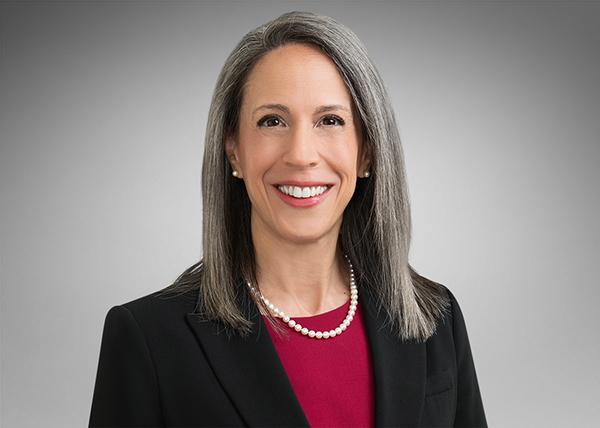On September 30, 2021, the Southern District of New York rejected a challenge to the U.S. Food and Drug Administration’s (“FDA’s”) final rule defining its approach to substances Generally Recognized as Safe (“GRAS”) within the meaning of the Federal Food, Drug, & Cosmetic Act (“FDCA”). FDA’s final rule codified the voluntary GRAS notification process and specified the requirements for submitting GRAS notices.[1]
FDA’s GRAS Regime
Under the FDCA, food additives are subject to premarket review and approval by FDA unless they are generally recognized as safe—or “GRAS”—for their intended use among qualified experts, or subject to other limited exemptions. Experts can generally recognize a substance as safe through scientific procedures and/or experience based on common use before January 1, 1958.
Starting in 1997, FDA instituted an interim voluntary GRAS notification regime, under which companies could submit a notice stating their conclusion that substances were GRAS for their intended use. If FDA does not disagree, the agency sends a letter to the company stating that it has “no questions” regarding the company’s GRAS conclusion. FDA continued to operate under the regime until 2014, when a lawsuit forced the agency to issue a final rule regarding GRAS determinations. FDA published a final rule in 2016 that modernized its GRAS regulations and codified the voluntary GRAS notification process. The final rule applies to GRAS notifications for substances intended for use in human food and those intended for use in animal food.
Southern District of New York Litigation
In 2017, two NGOs, the Center for Food Safety and the Environmental Defense Fund, filed a lawsuit in the Southern District of New York seeking to overturn FDA’s final GRAS rule. The challengers raised three primary arguments: (1) the rule unlawfully sub-delegates FDA’s regulatory duties to private industry, (2) FDA violated the Administrative Procedures Act (APA) by promulgating the rule in excess of its statutory authority, and (3) the rule’s criteria for determining GRAS status conflicts with the FDCA. The court rejected each argument.
- Sub-delegation: The court rejected the argument that FDA impermissibly sub-delegated its food safety duties to private manufactures. This claim centered on the fact that food companies may voluntarily notify FDA of their GRAS determinations, but are not required to do so. The court agreed with FDA that the rule does not amount to an unlawful sub-delegation, finding that FDA did not “shift to another party almost the entire determination of whether a specific statutory requirement . . . has been satisfied” nor did it “abdicate[] its final reviewing authority.” The court noted that the FDCA does not require that industry notify FDA of GRAS determinations, nor does it require that FDA affirm an ingredient’s GRAS status pre-market. Instead, FDA can satisfy its statutory duty to ensure food safety by bringing enforcement action if it disagrees with a GRAS determination. Thus, industry’s GRAS determinations are not insulated from FDA review.
- APA Violation: Next, the court determined that FDA did not violate the APA by issuing a rule in excess of its statutory authority. Applying the Chevron framework, the court rejected the argument that the plain language of the FDCA requires FDA to mandate that companies notify FDA of their GRAS determinations. The court then determined that FDA’s final rule is a reasonable interpretation of the FDCA, noting that FDA adequately considered and determined that voluntary notification was the best use of its resources. The court also rejected the plaintiffs’ argument that the rule was “arbitrary and capricious” under the APA.
- Consistency with FDCA: Finally, the court rejected the argument that the final rule’s criteria for GRAS status contravene the FDCA. In doing so, the court stated that it is permissible for FDA to allow industry to rely on unpublished material as part of a GRAS determination, as the FDCA does not explicitly prohibit the consideration of unpublished material. The court also dismissed the argument that the final rule does not include adequate criteria addressing conflicts of interest in making GRAS determinations, pointing to FDA guidance on this issue and noting that the FDCA does not delineate how such issues should be addressed. Finally, the court addressed the claim that the final rule fails to specify that carcinogenic substances can never be safe for inclusion in food, noting that that the specific statutory provision at issue applies to food additives and thus may not apply to GRAS substances which are excluded from the definition of “food additive.” Either way, the court concluded that the final rule’s criteria likely are sufficient to prevent carcinogenic substances from attaining GRAS status.
What does this mean for industry?
The court’s decision upholds FDA’s final rule without modification, and the decision therefore does not affect the current GRAS notification procedures. The challengers have 28 days to file a motion to amend or appeal the judgment and 60 days to file an appeal. Covington will continue to monitor developments in this case as well as legislative efforts to modify FDA’s approach to GRAS determinations (like the Toxic Free Food Act[2]).
This outcome is welcome news for industry, as FDA’s voluntary GRAS Notice process provides industry with the flexibility necessary to promote innovation in the food sector.
If you have any questions concerning the material discussed in this client alert, please contact the members of our Food, Beverage, and Dietary Supplements practice.
[1] See 81 Fed. Reg. 54959 (Oct. 17, 2016).
Back
Back







